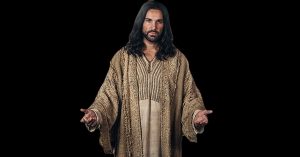Words are powerful. The Bible says death and life are in the power of the tongue. God created the world with words. In a day and age when political correctness and fear of offense changes the way we say many things, it is not surprising to hear there are new words and phrases added to the growing list of what-not-to-say.
Recently The Pentucket Workshop Preschool in Georgetown, Massachusetts, created a new rule for their preschool-aged students…no more “best friends.” Children can no longer express a greater affection for one child over another.
Mom Christine Harwell is unhappy. The new rule upset her little girl. Hartwell immediately began looking for a new preschool for her child.
“I think it’s ridiculous. Children who are 4-years-old speak from their heart, so they should be able to call kids anything loving, You’re my best friend, my best pal, even now she goes to say it in a loving way…and she looks at me sideways as she’s saying it …checking in with me to see if that language is okay,” she told WMTW8.
In a letter to the Hartwells, the school defends their new rule saying the ban of phrases like “best friend” promotes more inclusivity among the students. The logic, according to the school, is that by including one child in a close relationship, they are excluding all the others from the same favor.
How should we see this as believers?
In the Old Testament, we see examples of best friends in David and Johnathan, and mentoring in Elijah and Elisha. In the New Testament, we see Jesus had a large group of followers. He also had a smaller set – the seventy he commissioned – then the twelve he discipled personally. We read about the three he was friends with: Peter, James, and John, and other disciples often pointed to John as Jesus’ “closest” friend.
Christian faith is a personal relationship with Jesus. Without intimacy, we have a religion and a set of guidelines for dealing with life. By accepting we should not have “best friends” we send our children a dangerous message which, once received, could affect their faith later in life.
What do you think? Are rules like the one this New England school created helpful or harmful to kids?









